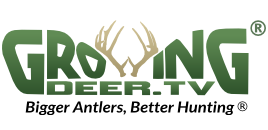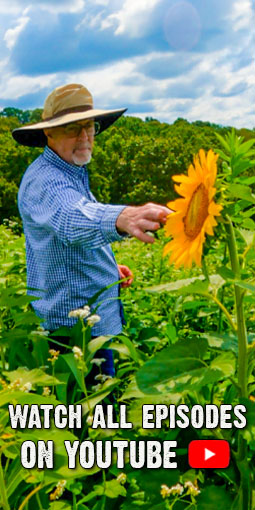Category: Ask Grant
Really bad soil?
If I have really bad soil but a great stand on cereal rye, can I let it set seed and just keep it there for another winter? I don’t need it as a food source yet, just soil conditioner.
Answer:
Catching Skunks
Dr. Grant, It’s my understanding that skunks are also common predators of turkey nests. What’s the likelihood of catching a skunk with a live trap and kibble as demonstrated on your show? I don’t know how I’d dispatch and get it out of the trap without getting sprayed! Thanks! Corey
Corey,
Skunks will enter live traps and are attracted to dog food. I occasionally catch skunks using this method, but I don’t pick locations specifically for skunks. If their population is high at your property, they usually leave ample sign of digging shallow holes in fields. Place traps near skunk sign if they are the predator you are targeting.
Skunks usually spray if shot in the head. However, they rarely spray if shot in the lungs with a solid point .22. This is a very humane method to dispatch skunks while not getting sprayed. Skunks usually remain very calm in traps. In fact, nuisance trappers commonly catch skunks in live traps and move them to rural areas before dispatching them. They simply approach the trap while talking in a soft tone to the skunks, drape a tarp over the trap, and transport them to a rural area. The skunks have a beautiful pelt!
Growing Deer together,
Grant
Pruning Fruit Trees
Hi Grant, I have been following your website for the past several months and truly enjoy receiving my latest edition from you each Monday. I am planting a dozen or so fruit trees. I know nothing about fruit trees other than I want to provide even more food for the deer and turkeys. The trees I have are about 6-7′ tall and are in 3 gallons. I am assuming they are probably 2-3 years old. Do you have any suggestions on pruning fruit trees? Thank you for what you are doing and may God continue to bless you richly. Kindest, Jason
Jason,
Thank you for the kind words and for watching GrowingDeer.tv! Different species of fruit trees require different pruning strategies. In general, most folks don’t seem to prune enough. However, I suggest you visit with the supplier where you purchased the fruit trees, or checkout some articles in Quality Whitetails or on the Quality Deer Management Association web site. They have published several articles that are specific to different species of fruit trees. Specifically I would recommend reading “A User’s Guide to Successful Apple Tree Plots.”
Growing Deer together,
Grant
The Shift
How come I see so many bucks in late summer and as soon as bow season starts I don’t see any of those bucks? Dusty
Dusty,
There are bucks at my place that do that also. One buck in particular at The Proving Grounds hits the road just after velvet shedding each fall. Again this fall, for the 3rd year in a row, one of our oldest bucks disappeared after feeding on my soybeans all summer long. As in past years, he will probably become a resident again in the spring and summer. This can be a challenging situation.
GPS collared bucks tell us that bucks often have a slight shift or even an entire shift between their summer and winter ranges. We’re not sure why it happens but every buck has its own personality and movement patterns.
Growing Deer together,
Grant



